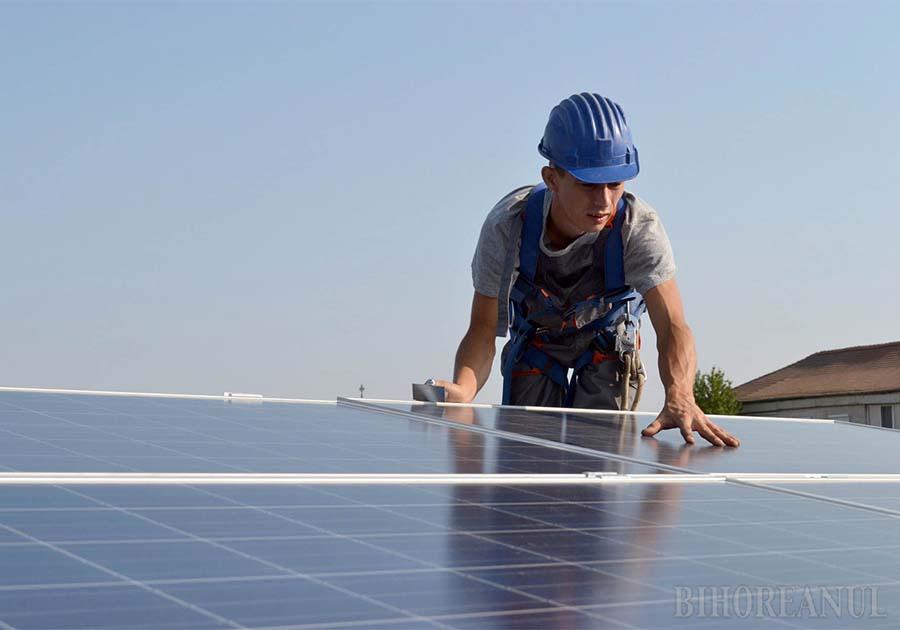Horrified by exploding electricity prices, Petre installed solar panels in his home. In August, Electrica Furnizare representatives installed a two-way meter, and in early October, he received a prosumer certificate.
“I presented all the documents, I deliver electricity to the grid, the meter works, but I don’t take advantage of any concessions, because they haven’t signed a contract for me yet,” says the man. Situation where there are dozens of other Bihorians…
The prosumer climate
The idea of the population producing its own electricity belonged to science fiction until recently. The term “prosumer” was in fact invented in the 1980s by the American futurist Alvin Toffler to define a person who consumes but also produces the energy needed for the home.
How life beats the film, if at the end of 2019 there were around 300 prosumers in Romania, now their number has jumped by 24,000 and is still growing. “They will be around 30,000 by the end of the year,” says one of the representatives of ANRE, Valeriu Steriu (photo).
That was to be expected. “The PV panel fever appeared in the spring, after the price of a kilowatt rose from 0.35 lei to 4.5 lei, and the payback time of the investment was shortened from 20 to about 6 years,” says an industry specialist.
A hundred times more!
The number of “producers” of Bihor has increased. “From dozens of prosumers in 2019, there are now 800, and by the end of the year it will be around 1,000,” says the specialist.
The county’s 30 for-profit corporations can barely keep up with the orders. “At least until spring there will be a lot of work. The beneficiaries of the Casa Verde and Electric Up programs are added to those who install the panels with their own money”, explains the technical director of the Sustainable Power company, Marian Magda.
Electrica employees make more than 10 connections to the grid every day. “Around 90% of the applicants are individuals, most of them from the Oradea area,” says an energy expert.
High demand creates bottlenecks. The process from signing the panel contract to signing the prosumer contract with the supplier takes six months. “The avalanche of requests has triggered a crisis of inverters and photovoltaic panels, and has been superimposed on the upheavals in the energy market,” says the specialist.
Blocked by invoice
With the functional system and meter installed, Petru, a homeowner in Oradea, has been waiting for the conclusion of the prosumer contract since the summer. “It’s a vicious circle. Electrica won’t give me a prosumer contract because I haven’t paid for electricity since May and, with the money in hand, I have no way to pay because they didn’t send me the bill,” says the man.
Although thousands of Bihoren have not received their bills, only three prosumers have turned to Consumer Protection. “People know the bills are blocked in Bucharest, so they don’t actually press charges,” says an official.
For late invoices, last week ANRE symbolically fined large suppliers, from Electrica and Hidroelectrica to E.ON Energie and Enel for a total of 380,000 lei, but this does not solve the problem. “I don’t have a contract yet,” says Petre. The man hopes that the supplier will bill him for the amount of electricity fed into the grid starting in October, from the installation of the meter, as the Consumer Protection officers told him…
After the panels, the batteries…
Currently, most prosumers don’t know how much they will save. “The parity between the current fed into the grid and that purchased is about 1:3. You buy more expensive because you pay all types of taxes. For this reason, I have set up a system to cover domestic consumption, without having to buy from the grid”, he says the inhabitant of Oradea.
But things are complicated. Few people know that if the percentage of use of a company’s system is around 60%, because it consumes electricity mainly during the day, it is halved for the population. “During the day, when the photovoltaic panels produce electricity, domestic consumption is low, because people, being at work, only operate the refrigerator, and the energy goes to the grid,” explains a specialist in the sector.
For PV panels to be truly efficient, prosumers would need to purchase batteries to store the energy produced during the day for consumption in the evening or night. “Now everyone is putting up billboards. The next step will be to buy batteries,” anticipates the specialist. For the same power, the cost of the batteries is almost equal to that of the photovoltaic system, so prosumers who want energy independence will practically have to double the investment. Only then will they know they have escaped inflated rates, because they are their own suppliers. But at what cost…


